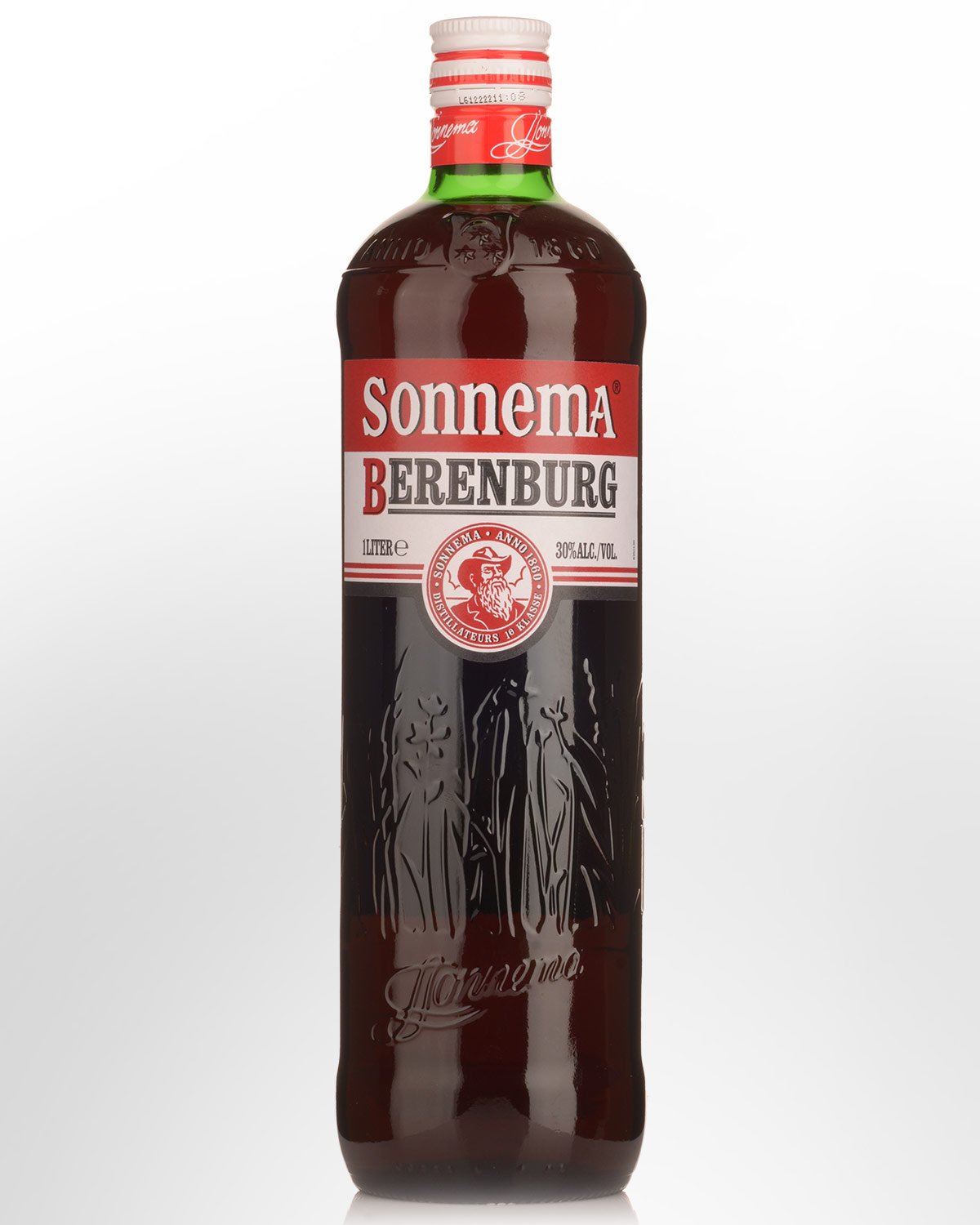
Sonnema Berenburg (Beerenburg) (1000ml)
Beginning around the middle of the 17th century, sailors were purchasing formulated herbal packages noted as 'Genuine Gastro-Herbs'. These herbs would be mixed with Genever (Gin) or brandewijn (Brandy) and had a reputation for curing any ailment. One herbal package bared the name 'Beerenburg' after its creator Henry Beerenburg, a local herb merchant located in Amsterdam.
As popularity for Beerenburg grew, particularly in Friesland (a coastal province north of the Netherlands) and to a lesser extent, Groningen, many variations surfaced endeavouring to replicate the composition. These were typically produced by pharmacists looking to cash in on its famous ‘medicinal’ properties. Though not able to label their product as 'Beerenburg', competitors would alter the name slightly to ensure their product would share the same success as its originator. Later in 1864, a recently widowed Anjenette Joustra sourced the original recipe of 'Beerenburg' and started her own distillery named 'Widow Joustra', producing the Beerenburg herbs with Dutch genever (gin). Today, the Widow Joustra and Meekma distilleries are the only distilleries allowed to carry the name.
Variations now exist such as 'Berenburg' without the 'e' & ‘Beerenburger’ with the most well known being the 'Sonnema Berenburg'. Each brand is unique, regarding their own product as the finest example with their recipe sworn to secrecy. What is known, is that they each share common elements in their make-up, namely, juniper berries, sandalwood, bay-leaf, gentian root, centaurium and a 30% Alc/Vol content.
When Fedde Sonnema, a stubborn innkeeper from the same era wanted to add a personal touch to the existing 'Beerenburg' label, 'Sonnema Berenburg' spelt with the one 'e' was born. This product consists of juniper berries, bay leaf, gentian root, sandalwood, centaurium with the added esblad and orange peel which makes for a distinctive product. The herb mixture is produced in 24 hours and first steeped in water before been added to the genever where it’s rested for 2-3 days.
Typically, all derivatives of Berenburg are enjoyed with cola, lemon ice tea or citrus juices.
An additional note for the curious (or confused) reader: herbs added to genever (gin) is classified as Berenburg (misnomer), however when herbs are added to brandewijn (brandy) it’s classified as a herbal liqueur.
Other Reviews... Fragrance: restrained aromas bitter, spicy herbal notes, anise, mint, candies, a lot of chocolate, liquorice delicate, not much spiciness. Taste: Delicate character and roots of bitterness, mineral-like, cinnamon and cloves spiciness, somewhat almond, caramel-like, sweet chocolately finish. - www.worldspiritsguide.com
to most of Australia
